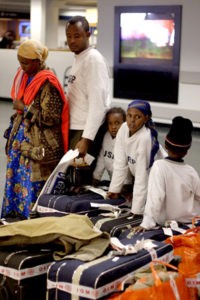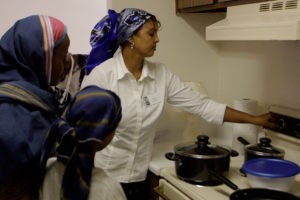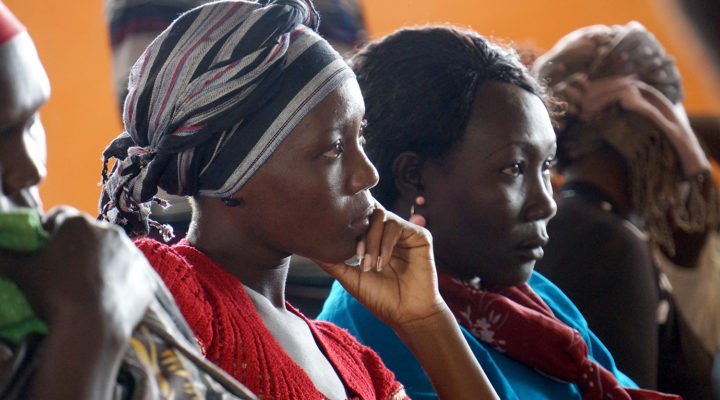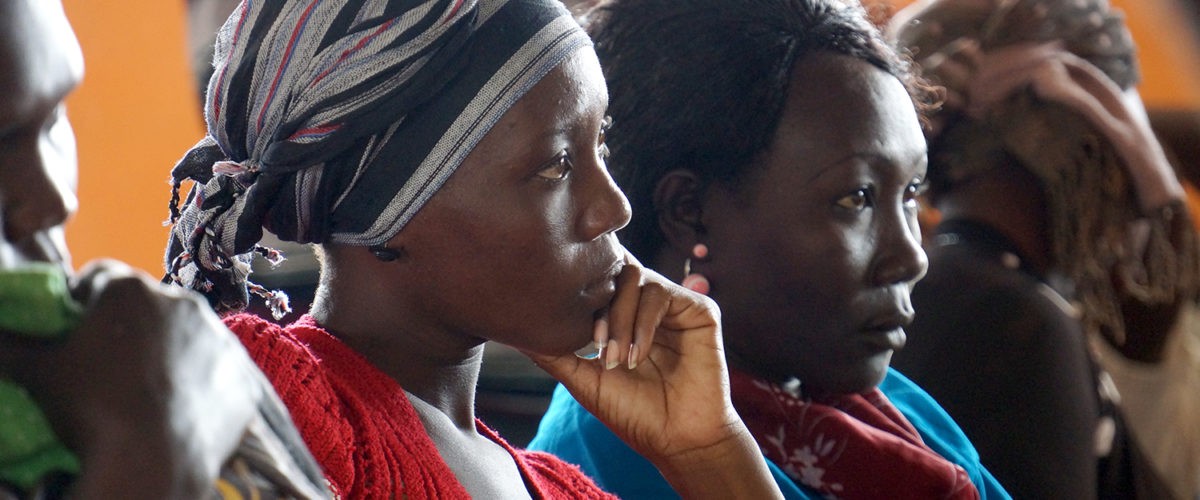For some Americans, domestic and overseas terror attacks, plus a good dose of anti-Syrian political rhetoric, have made refugee resettlement something to be feared.
And a lot of the Americans who hold that view are churchgoers – including a lot of Baptists – LifeWay Research found in a new study.
The Nashville, Tenn.-based organization surveyed 1,000 Protestant pastors on their attitudes toward refugees, refugee resettlement and ministry. It also asked where their churches stand on these issues and found that ministers are more open to this ministry than are their congregations.
“Pastors believe Scripture tells Christians to care for refugees and foreigners,” said Ed Stetzer, LifeWay’s executive director. “Yet many admit their church is not involved in such ministry.”
More than half of Baptist pastors surveyed said there is “a sense of fear” in their congregations about refugees resettling in the U.S., LifeWay found.
‘We are overwhelmed’
But the survey doesn’t square with the reality of some directly involved in refugee resettlement.
“My experience is completely the opposite,” said Ali Al Sudani, director of refugee services for Interfaith Ministries for Greater Houston.
Al Sudani and his department are charged with finding homes and jobs for refugees assigned to the Houston area by the U.S. State Department.
The agency depends on donations of clothing, furniture, appliances, money and other items refugees need to begin their lives in the United States.
For that, he said, his agency depends largely on Christian, Jewish and Muslim communities in the region. As a whole, Al Sudani said, they come through big — and that includes churches.
“Churches are acting on this problem and involved in this problem because of their faith tradition, which is welcoming the strangers,” he said.
In fact, church support “increased significantly” after the Syrian refugee crisis began last fall and has stayed strong despite growing anti-Syrian rhetoric from American governors, presidential candidates and other politicians, he said.

A refugee family arrives at Hobby Airport in Houston, Texas. Resettlement officials say 1,500 refugees from 11 countries, arrive in Houston annually. (Photos courtesy of Interfaith Ministries of Houston)
“We are overwhelmed with the number of churches wanting us to come and give orientations and asking ‘how can we get involved?’” he said.
Al Sudani said he can believe some churches fear refugees because they don’t understand how refugees are screened overseas before arriving in their host countries. It’s also understandable that the current political climate generates fear in some people.
“But as of right now, I have not had any churches who said they are afraid of working with refugees,” he said. “We have many more who have reached out and said they want to do something.”
Many of those congregations, he added, have been directed to him by Butch and Nell Green, Cooperative Baptist field personnel who work with refugees and immigrants in Houston.
‘Start from the very beginning’
Nell Green said she, too, doesn’t see the degree of fear reported in the LifeWay survey. But she does agree with its finding that refugees, and refugee resettlement, is not a topic in many churches.
But that tends to be true mostly in places outside large urban areas where refugees are typically resettled, she added.
“Honestly, in the cities where there are a lot of refugees, there is a lot more interest than the survey indicates,” she said.
However, there are challenges in getting churches involved in refugee ministry, Butch Green said. Among them are the language and cultural barriers that often discourage Americans and the refugees they are trying to help.
Another is not knowing the difference between immigrants who have crossed the U.S.-Mexican border illegally, and refugees who have been vetted by the United Nations and U.S. State Department before legally arriving in the United States.
But even knowing those differences does not dissipate the fear some congregations have about refugees, he said.
“Every church we go and talk to, at least one or two people ask why we are doing this and why do we want to help these people when they want to kill us,” Butch Green said.
“We have to start from the very beginning and say we are supposed to love them as Jesus said to love them,” he said. “Even if they are our enemies, we are supposed to love our enemies.”
He also reminds churches that helping refugees is not a political issue.
‘A lot of hard work’

An employee of Interfaith Ministries for Greater Houston helps a refugee family settle into their new apartment. (Photo courtesy of Interfaith Ministries of Houston)
But even churches with those concerns usually end up helping in some way, he added. That can be by making baskets, donating household items and clothing, or adopting refugees to help them negotiate American stores, doctor’s visits and the like.
Nell Green said it takes a lot of education to get churches onboard with refugee resettlement. She said it’s why CBF has field personnel stationed around the country focused on that ministry.
She noted that Kim and Marc Wyatt have established a strong refugee outreach program in Raleigh, N.C. They are managing a short-term housing unit for refugees and have 14 churches from around the region helping out.
“Yes, it isn’t every day that we have that many churches involved with us in ministry to refugees, but it surely is connected to the response of Cooperative Baptists to the terrible things they are hearing and seeing on TV,” the couple wrote in a recent article in CBF’s The Gathering magazine.
Nell Green said churches need that kind of leadership in refugee ministry.
“We have to help people in how to meet a refugee and how to come alongside them,” she said.
“Honestly, it’s a lot of hard work.”
— Cover photo by Tom Albinson.



